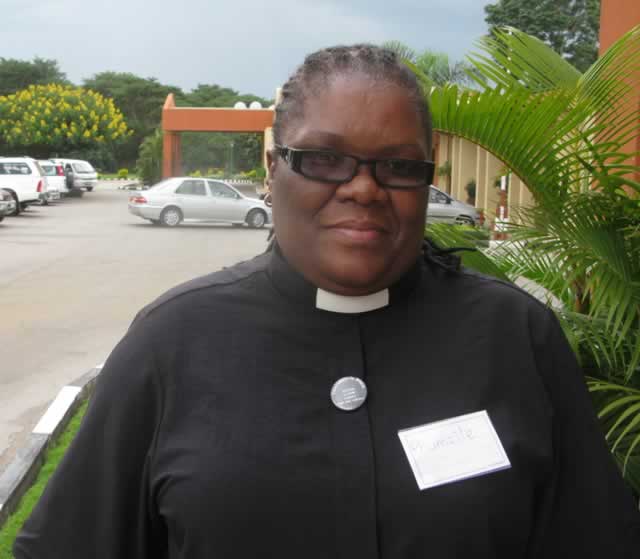MSF winds up great work. . . leaves mark of new lease of life
Catherine Murombedzi HIV Walk
An adage says a friend in need is a friend in deed.
Zimbabwe has had such a friend who held her hand through thick and thin.
The friendship has seen the strain on Zimbabwe’s health delivery easing so much that the friend now plans to leave.
Medecins Sans Frontieres/Doctors without Borders (MSF) has been in Zimbabwe since 2000 and worked tirelessly with the Ministry of Health and Child Care by providing emergency response to medical crises and implementation of health care programmes.
Although the HIV burden still remains high in Zimbabwe, it is no longer at pandemic levels.
When MSF started its work, most of its patients were bedridden, carried to hospitals in wheelbarrows and many were in home-based care waiting to die.
Today, with the success of the anti-retroviral therapy (ART) programme, which received national roll out in 2004, those who were on the verge of death are now strong and working, thanks to the Government and partners like the MSF.
The HIV emergency is far from over.
There is still need for resource mobilisation to fund the programme until no new HIV infections are recorded.
Although the Zimbabwean Government established a home grown resource mobilisation programme in 2000, the National Aids levy, there is need to further develop sustainable financing mechanism which will focus on increasing domestic and international funding.
Strengthening effective and efficient use of financial resources in the national response to HIV can therefore not be underplayed.
Getting people on treatment early keeps them healthy and reduces the further spread of the virus.
MSF in partnership with the health ministry had projects in 10 locations in Zimbabwe.
These include Mbare, Epworth, Nyanga, Buhera, Gutu, Chikomba, Gokwe North, Beitbridge and Tsholotsho.
In December 2013, MSF handed over the Beitbridge district to the Ministry of Health and Child Care.
The organisation (MSF Spain)is also leaving Tsholotsho in the hands of the ministry by year-end.
This was revealed at a feedback forum by the National Aids Council for stakeholders recently.
MSF medical team leader in the district, Dr David Wachi said: “As MSF we are winding down our work in Tsholotsho district.
“We are holding handover, takeover work group committees with stakeholders and the parent ministry which will safely takeover the work.
“When we came into the district just like the other areas we selected to work in, the HIV burden was high.
“As an organisation we have trained staff from the Ministry of Health and Child Care, we have helped set up structures and have initiated people on ART. We have seen an improvement in the lives of people living with HIV.”
He added: “In Tsholotsho we worked at the district hospital and at 14 rural clinics.
“We have supported programmes through development stages and growth.
“As we hand over our projects to the Ministry of Health and Child Care, we have ensured capacity is built to sustain the quality of care. There are nearly 16 000 clients on ART in the district.
“In 2011 we successfully handed over activities in Gweru and Bulawayo to the parent ministry.”
He also said nurses now play a leading role in managing HIV cases in all the 14 health facilities they were supporting in Tsholotsho.
Dr Wachi said the programme had expanded anti-retroviral therapy access to all the health facilities through trainings of “task shifting”, where it has empowered the nurses to do the jobs that should have been done by the doctors.
“This led to increased ART coverage and reduced delays in ART initiation.
“We have a challenge of doctors coming down to these areas.
“Unfortunately the burden of HIV is with the villager, and so we have trained local nursing staff to initiate ART,” Dr Wachi said.
MSF has realised the need to ensure that treatment is available as close to where people live as possible.
“Decentralising care to rural clinics and health posts has been critical to fostering treatment scale-up and has been enabled by shifting medical tasks so that lower levels of health staff can perform tasks that were previously reserved for doctors,” added Dr Wachi.
MSF has extended services to reach more people at community level and improved retention in care.
They have helped people on ART to form adherence clubs where a group made of 10-30 people come up and meet at the same clinic.
“Community ART groups (CAGs) are formed with neighbours teaming up and forming the group where one person then visits the health care facility on behalf of the team to collect medicine refills.
“If one is not ill then there is no need to visit the clinic and this saves time and money.
“It also helps in adherence as the group medicine should be refilled at the same time,” he added.
Head of mission for MSF (Spain) Zimbabwe, Victor Garcia Leonor said despite advances made in offering HIV and TB services as well as putting people on treatment, the infections remained an emergency in Zimbabwe.
“Transmission rates from HIV positive mothers to their babies are still too high and children and young adults are still often excluded from HIV response.
“We have patient reality models that allow them to be treated in or close to their homes rather than at central or national level,” Leonor said.
MSF also responded to medical emergencies in the country during the cholera outbreak in 2008.
They also responded to measles, malaria and typhoid outbreaks in 2011-2012 and worked in conjunction with the Ministry of Health.
As the friend in providing health care moves to serve other areas in need, let us carry over the great work that they have started.
Adios MSF as we take a leaf from your great initiative.
Feedback:[email protected]







Comments